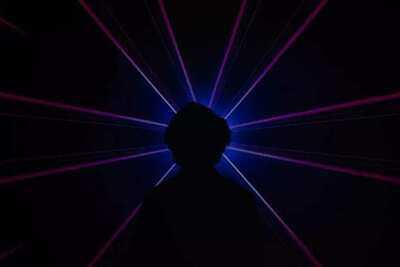 “I should have said something.” “I should have done things differently.”
“I should have said something.” “I should have done things differently.”
Regret is a cruel teacher. It arrives late, long after the moment has passed, and whispers,
"You could have made a different choice." But why do we only recognize the value of something once it’s gone? Why does wisdom often come at the cost of pain?
The Bhagavad Gita does not see regret as mere sorrow; it sees it as a lesson. Krishna, through his timeless words to Arjuna, tells us that regret is not a punishment but a sign that we are waking up. But how do we stop learning through loss? How do we act before it’s too late?
Let’s explore what the Gita teaches about regret and how we can transform it into wisdom.
1. The Illusion of Time: We Always Think We Have More
"I’ll do it later." "There’s still time." "Maybe tomorrow."

How often do we put off things that truly matter—telling someone we love them, apologizing for a mistake, chasing our dreams?
The Gita reminds us that time is fleeting:
"कर्मण्येवाधिकारस्ते मा फलेषु कदाचन।"
"You have the right to perform your duty, but never to the fruits of your actions." (Bhagavad Gita 2.47)
We live under the illusion that we are in control of time, but time moves on, indifferent to our delays. Krishna teaches that action in the present moment is the only truth—waiting for the 'right time' often leads to regret.
2. The Ego’s Resistance: We Only See the Truth When It Hurts

Most of the time, we know when we are making a mistake. We sense when something isn’t right, yet we justify, deny, or ignore it. Why?
Because accepting the truth requires humility. And humility is uncomfortable.
In the Gita, Arjuna refuses to fight, overwhelmed by emotions. Krishna tells him:
"अशोच्यानन्वशोचस्त्वं प्रज्ञावादांश्च भाषसे।"
"You are grieving for those who should not be grieved for, yet you speak words of wisdom." (Bhagavad Gita 2.11)
This is what we do—we justify our actions, even when we are wrong. Only when reality forces us to face the consequences do we regret ignoring the truth.
3. Attachment Blinds Us: We Cling to the Wrong Things

Regret often comes from holding onto things we should have let go of— toxic relationships, wrong career paths, unfulfilled desires. The Gita warns against attachment:
"वितरागभयक्रोधा मन्मया मामुपाश्रिताः।"
"Freed from attachment, fear, and anger, one who surrenders to me finds true wisdom." (Bhagavad Gita 4.10)
We fear change, so we stay stuck in suffering. And later, when we realize we wasted precious years, regret is all that remains.
4. Fear of Discomfort: Growth Only Happens When We Face Reality Why don’t we make the changes we know we need?

Because change is uncomfortable. The mind prefers familiar suffering over unknown happiness. We procrastinate, avoid difficult conversations, and delay decisions—until life forces them upon us.
Krishna says:
"सुखदुःखे समे कृत्वा लाभालाभौ जयाजयौ।"
"Treat pleasure and pain, success and failure alike—this is the path to inner peace." (Bhagavad Gita 2.38)
Pain teaches us what comfort cannot. But the wise do not wait for suffering to learn—they embrace truth before regret forces them to.
5. The Ultimate Truth: Regret Means the Lesson Was Always There

Regret is not just about the past—it is a realization of what we already knew but chose to ignore. Krishna tells Arjuna:
"न हि ज्ञानेन सदृशं पवित्रमिह विद्यते।"
"There is nothing more purifying than true knowledge." (Bhagavad Gita 4.38)
Truth was always available to us, but we were not ready to see it. That’s why people regret after it’s too late—because wisdom isn’t new, it’s just recognized too late.
The Choice Is Always Ours Regret is a teacher—but a painful one. The Bhagavad Gita does not tell us to fear regret, but to live in awareness so that we don’t need to experience it.
At every moment, life gives us a choice:
- To act now or wait until it’s too late.
- To listen to truth or let ego delay wisdom.
- To let go or be forced to lose.
We can either learn through wisdom or learn through regret. The choice, as Krishna reminds us, has always been ours.
Which path will you choose?
 “I should have said something.” “I should have done things differently.”
“I should have said something.” “I should have done things differently.”

 Most of the time, we know when we are making a mistake. We sense when something isn’t right, yet we justify, deny, or ignore it. Why?
Most of the time, we know when we are making a mistake. We sense when something isn’t right, yet we justify, deny, or ignore it. Why?
 Regret often comes from holding onto things we should have let go of— toxic relationships, wrong career paths, unfulfilled desires. The Gita warns against attachment:
Regret often comes from holding onto things we should have let go of— toxic relationships, wrong career paths, unfulfilled desires. The Gita warns against attachment:

 Regret is not just about the past—it is a realization of what we already knew but chose to ignore. Krishna tells Arjuna:
Regret is not just about the past—it is a realization of what we already knew but chose to ignore. Krishna tells Arjuna: